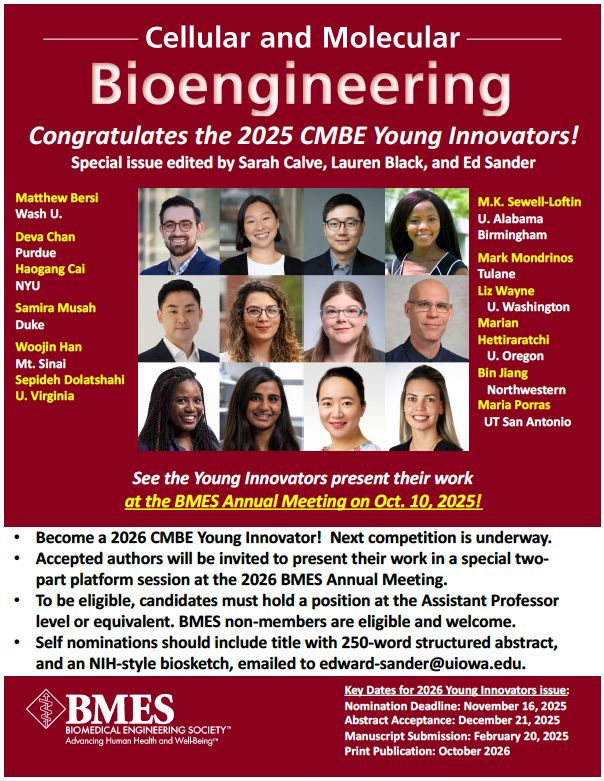01/17/2023 Call for Papers! Frontiers in Bioengineering and Biotechnology
- Haogang Cai
- Jan 17, 2023
- 2 min read
Prof. Cai serves as a topic editor of "Frontiers in Bioengineering and Biotechnology" (Impact factor 6.064), on the new Research Topic: "Advanced Nano-Bio Interfaces for Biosensing and Diagnostics", which is now open to submissions.
With the rapid development of biomaterial and nanotechnology, micro/nano biosensors have gained tremendous interest, especially during the ongoing COVID-19 pandemic, with the advantages of miniaturization, high sensitivity, cost-effectiveness, and the potential for compatible fabrication by semiconductor manufacturing processes. In particular, recent research advances in two-dimensional (2D) nano-bio interfaces, such as 2D materials, metasurfaces, and nanopore membranes, have paved the way toward new paradigms of electrochemical and optical biosensing, imaging and diagnostic platforms. These 2D surfaces can be further integrated with electronic, microfluidic and mechanical components for broad applications. For example, the microfluidic chip-based format allows lateral flow assays, multiplexed assays, and easy washing during analytical procedures, which are suitable for lab-on-a-chip and point-of-care devices. The integration with micro/nano systems such as MEMS also enables wearable and endoscopic devices for diagnostics.
Accordingly, this research topic focuses on the development of advanced nano-bio interfaces for biomedical applications including biosensing, bioimaging and disease diagnostics. The goal is to foster the next generation of biosensors based on novel nano-bio interfaces, including 2D materials, metasurfaces, nanopore membranes, etc., and their intergradation with specific biofunctionalization and diverse platforms, including microfluidics, wearable devices and micro/nano systems, etc. The new sensing mechanisms will improve the sensing performance, and push the limit of detection down to the molecular level. The system integration will enable point-of-care and wearable devices for continuous health monitoring and personalized healthcare, as well as implantable and endoscopic devices for in vivo diagnostics. Notably, the rapidly growing research in this field since COVID-19 has been helping with the worldwide demand for affordable, portable, user-friendly diagnostics for the ongoing and potential future pandemics. Overall, we wish to use this opportunity to provide the latest advances to a broad readership, with the hope to motivate interdisciplinary collaborations among researchers of many fields.
For more information, please check the research topic here:





Comments